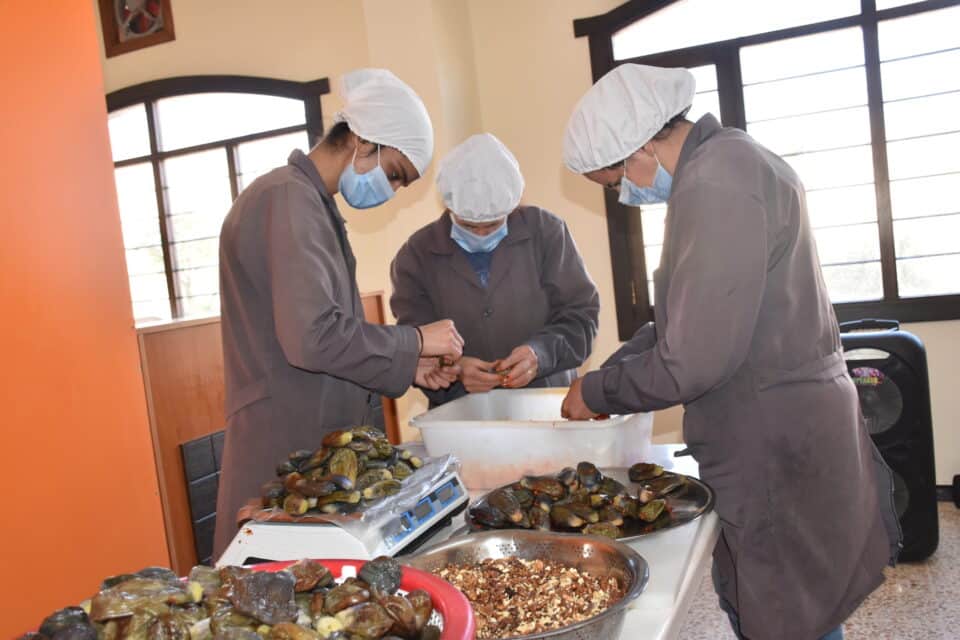Help our local partners realise their vision of hope for their communities

The end of traditional gender roles in Syria? The Syrian civil war has exacerbated gender-based inequalities. Women and girls are vulnerable groups in society and are disproportionately affected by armed conflict, both during and after the war, because existing inequalities are magnified. Syrian women’s tenacity has been demonstrated in the Syrian humanitarian crisis. They have fought for their rights, despite experiencing of growing sexual violence, food insecurity, and exploitation. Not only has the Syrian civil war presented women with new challenges, but also new opportunities to incite permanent change.
Patriarchal culture and discriminatory laws are entrenched in Syria. The Syrian regime excludes and oppresses women by depriving them of political, social, economic, and legal rights. Women are treated like second-class citizens. Restrictions on women’s lives are imposed by the regime and wider society, including dress restrictions.
The civil war in Syria broke out in 2011. As well as imposing restrictions on women’s freedom, the civil war has altered the traditional role of women in Syria. An independent Syrian MP stated, “the traditional role of women is changing because of the war.” Amidst the chaos and conflict, new opportunities and roles have emerged for women. The civil war has forced women to fill roles in the workforce that were historically reserved for men. Currently in almost one third of households in Syria, women are both the decision-makers and breadwinners. Women now experience a dual burden. They are forced to take responsibility for both domestic and paid work. This puts extra pressure on women to fulfil multiple roles that they previously were not required to. On the one hand, the conflict has enabled women to infiltrate sectors that they couldn’t before, like the civil society, media, and government. Women now have greater opportunity to influence decision-making and directly influence choices that impact them. This has empowered women, to some extent, by granting them with new powers and responsibilities to enact change. The implications of the changing role of women in Syria is up for debate among feminists, women in Syria and scholars.
On the other hand, women are now at even greater risk of domestic violence, sexual assault, sexual harassment, and institutionalised discrimination. Increased opportunities for women have come at a cost. In the 2011 pro-democracy protests, women in Syria made use of the chance to advance their rights. They protested and participated in demonstrations with the goal to progress human rights in Syria, and champion for democracy by showing their opposition to the Asaad regime. Yet, this made women targets of the armed forces attacks. Due to the civil war, a space has emerged for women to champion for women’s empowerment in Syria but as a result has put them at greater risk of violence and oppression. It is clear this shift in roles, has not resulted in changes to the legal rights for women. Instead, it has pushed them into new roles and expectations which expose them to exploitation. Opportunity does not equal legal equality. Despite giving women a chance to showcase their talents and abilities that they previously did not have the chance to illustrate, it hasn’t advanced equality. Syrian social norms still impede women’s success.
The changing role of women in Syria is not isolated to employment. Syrian women are taking roles in terrorist groups that were previously reserved for men like suicide bombers. The numbers of women and young girls becoming radicalised by ISIS is growing because they are unsuspecting targets. Women and young girls’ position in society makes them easy targets. Participation in terrorist activities increases women and young girls’ exposure to violence and terror. Likewise, women and girls in ISIS are subject to discriminatory and strict rules. Their freedoms and choices are heavily restrained. Overall, Syrian women have lost their security, homes, livelihoods, family members, and social status.
Women’s future in Syria is undetermined. Sceptics fear that reconstruction and peacebuilding in the future will coincide with return to traditional gender norms and values. Perhaps the only explanation for the temporary change in gender roles is the chaos and uncertainty of war, rather than real desire to alter traditional gender roles and advance gender equality. War and conflict provide fertile ground for systemic change. The international community must intervene and take a strong stance to tackle gender-based issues in Syria like sexual violence, food insecurity, poverty, and domestic violence. It is essential that necessary changes in women’s rights are sustained. Traditional gender roles should continue to be challenged. Others believe this can be a permanent change, given the correct actions are taken to sustain and advance women’s equality.
Achieving full equality for women in Syria will not be a swift, nor easy, process. It would require a complete restructuring of Syria’s patriarchal culture and discriminatory legal system. International communities and organisations must give a helping hand to women in Syria to aid them with resources and protection to advance their rights, with ease and safety. If any good can come out of the tragedies of the Syrian civil war, it would be the advancement of equality for women. During this time of chaos and conflict, big strides can be taken for women. In the state of uncertainty, the space and opportunities for change are present.
By Daisy Petrow, HART Intern
References
(1) https://press.un.org/en/2003/sc7908.doc.htm#:~:text=WOMEN%20SUFFER%20DISPROPORTI
ONATELY%20DURING%20AND,PEACE%20AND%20SECURITY%20%7C%20UN%20Press
(2) https://reliefweb.int/report/syrian-arab-republic/women-syria-s-economy-feminist-review-womens-economic-empowerment
(3) https://timep.org/syrias-women/economy/the-shifting-role-of-women-in-syrias-economy/
(4) https://www.wilpf.org/women-rights-in-syria-caught-between-discriminatory-law-patriarchal-cultur
e-and-exclusionary-politics/
(5) https://www.tandfonline.com/doi/full/10.1080/08974454.2018.1547674?scroll=top&needAccess=
true
Although all blog posts are reviewed by an editorial team, our blog authors all write in a personal capacity and the views expressed are not necessarily those of HART.